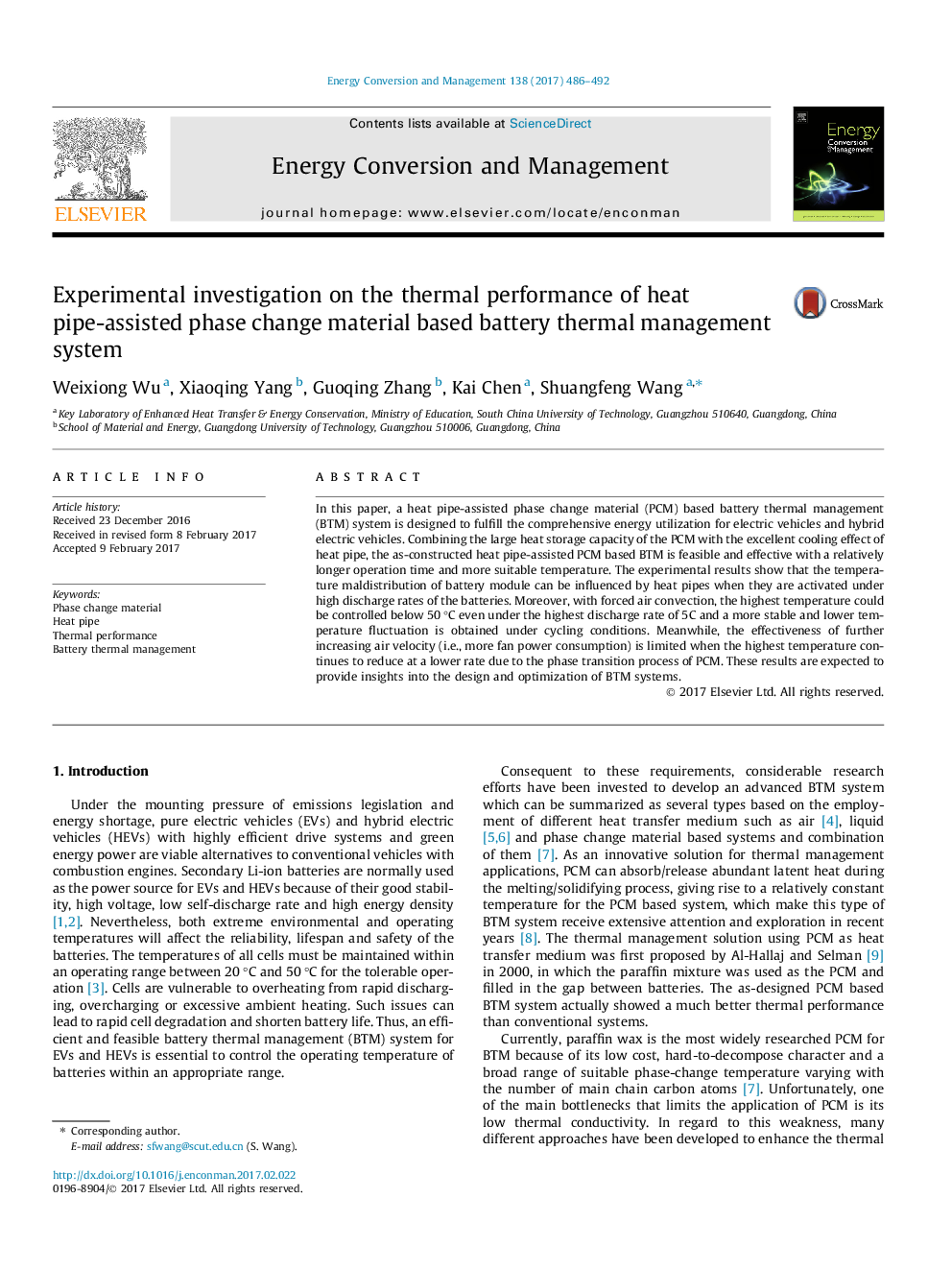ترجمه فارسی عنوان مقاله
بررسی تجربی بر روی عملکرد حرارتی سیستم کنترل حرارتی باتری بر اساس تغییر فاز حرارت توسط لوله گرما
عنوان انگلیسی
Experimental investigation on the thermal performance of heat pipe-assisted phase change material based battery thermal management system
| کد مقاله | سال انتشار | تعداد صفحات مقاله انگلیسی |
|---|---|---|
| 136713 | 2017 | 7 صفحه PDF |
منبع

Publisher : Elsevier - Science Direct (الزویر - ساینس دایرکت)
Journal : Energy Conversion and Management, Volume 138, 15 April 2017, Pages 486-492
ترجمه کلمات کلیدی
مواد تغییر فاز لوله حرارتی، عملکرد حرارتی، مدیریت حرارتی باتری،
کلمات کلیدی انگلیسی
Phase change material; Heat pipe; Thermal performance; Battery thermal management;

